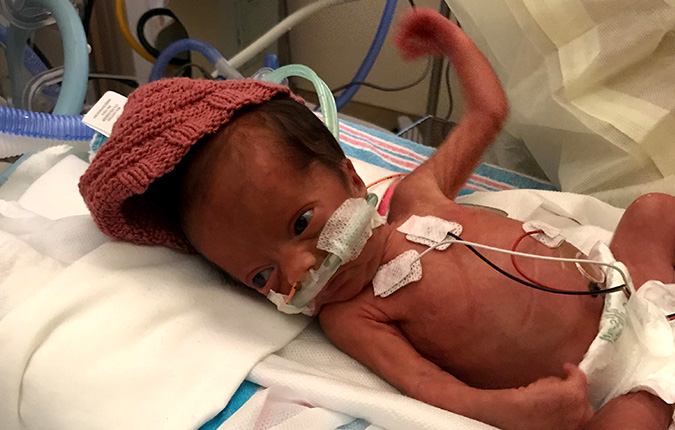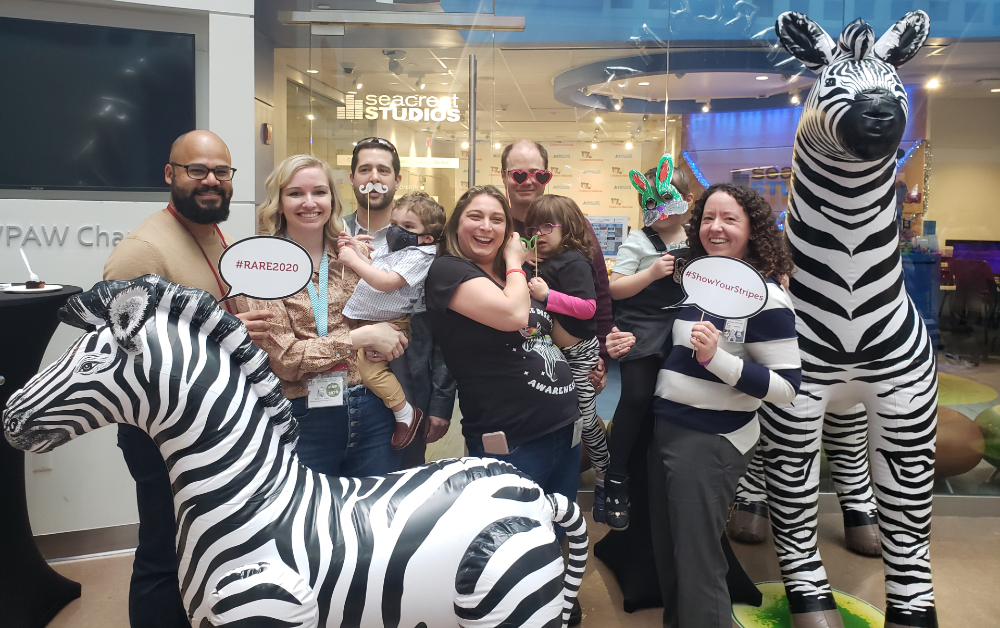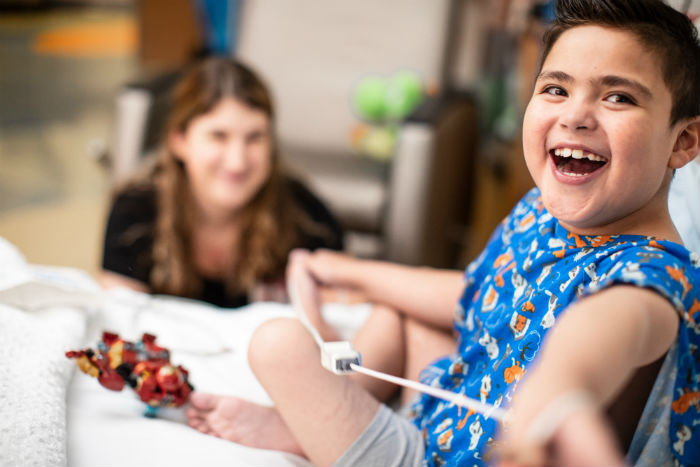Condition
Pediatric Mosaic Down Syndrome
What is Mosaic Down syndrome in children?
When a baby is born with Down syndrome, the healthcare provider takes a blood sample to do a chromosome study. Mosaicism, or mosaic Down syndrome, is diagnosed when there is a mixture of two types of cells. Some have the usual 46 chromosomes, and some have 47. Those cells with 47 chromosomes have an extra chromosome 21.
Mosaicism is usually described as a percentage. Typically, 20 different cells are analyzed in a chromosome study. A baby would be said to have mosaic Down syndrome if:
- 5 of the 20 cells have the typical number of 46 chromosomes
- The other 15 have a total of 47 chromosomes due to an extra chromosome 21
Since the percentage of cells with an extra chromosome is 15 out of 20, the baby would have a level of mosaicism at 75%. The percentages may vary in different parts of the body. The percentage of cells in the muscle may differ from the percentage in the brain, blood, or skin.
Babies born with mosaic Down syndrome can have the same features and health problems as babies born with trisomy 21 or translocation Down syndrome, where the extra chromosome material is present in all the cells. But it's possible that these babies may have fewer characteristics of the syndrome than those with other types of Down syndrome.
Are there any studies to better understand mosaic Down syndrome?
There are ongoing studies to find out if there are any differences in the health of people with mosaic Down syndrome, depending on how the mosaicism occurred. There have also been studies looking at whether the percentage of mosaicism can predict the baby’s IQ or whether there will be a heart defect. These studies show that the percentage of mosaicism doesn’t accurately predict outcome. Mosaic Down syndrome cases can vary greatly. They can range from having very mild features to having most of the features of non-mosaic Down syndrome.
What is the chance for mosaic Down syndrome to happen again in a family?
The risk for chromosome defects in a pregnancy varies based on the mother’s age at the time of delivery. It increases yearly with increasing age. But the chance is likely very low.

Rare Disease Treatment at Children's National Hospital
In the Rare Disease Institute at Children's National, we focus on providing advanced care for young patients with rare genetic conditions. Discover more about the treatment we offer.

 Aasha's Rare Gift Will Help Other Babies Grow up Healthy
Aasha's Rare Gift Will Help Other Babies Grow up HealthyTesting the descrption field
Departments that Treat Mosaic Down Syndrome

Rare Disease Institute
Children’s National Rare Disease Institute (CNRDI) is a first-of-its-kind center focused exclusively on advancing the care and treatment of children and adults with rare genetic diseases.






